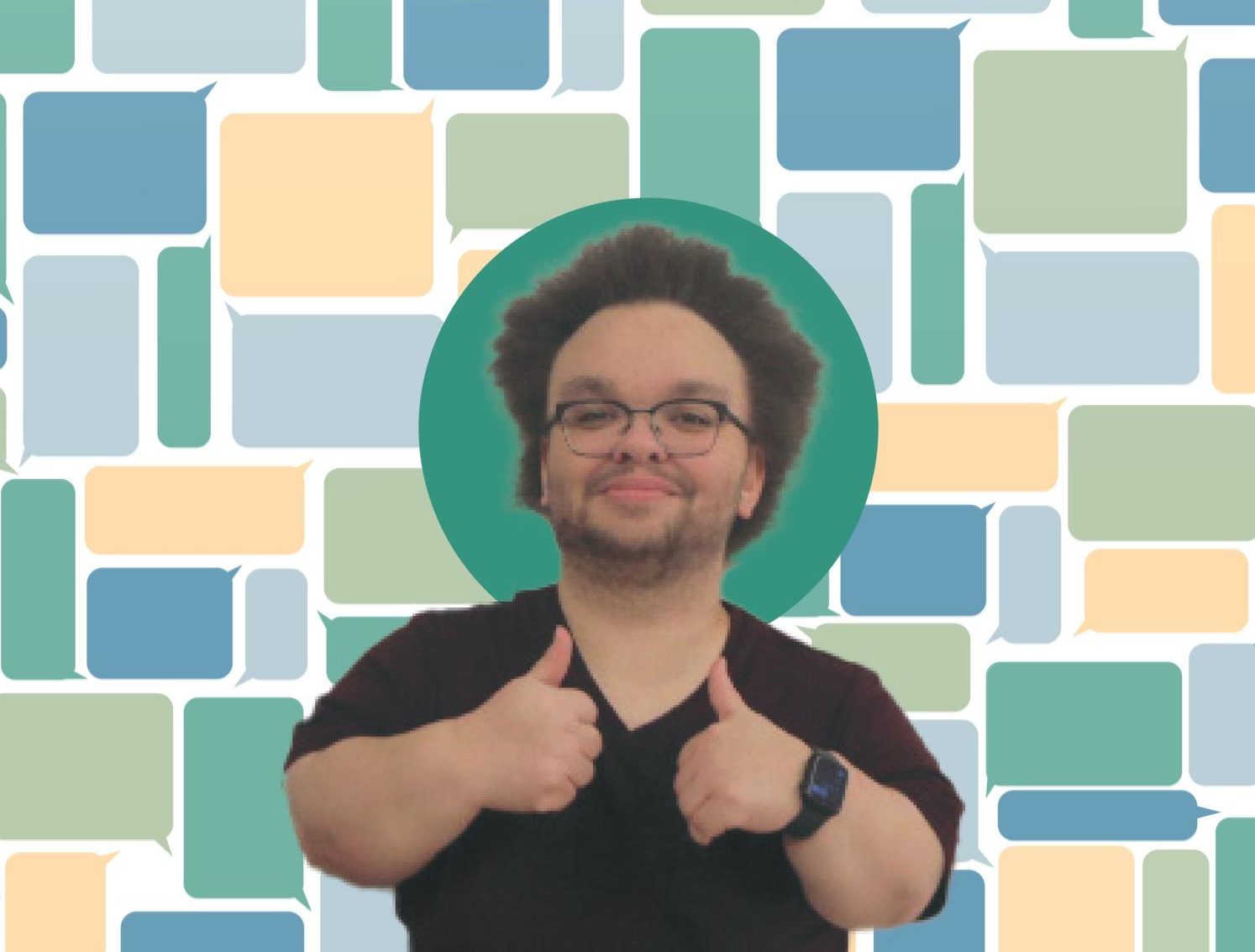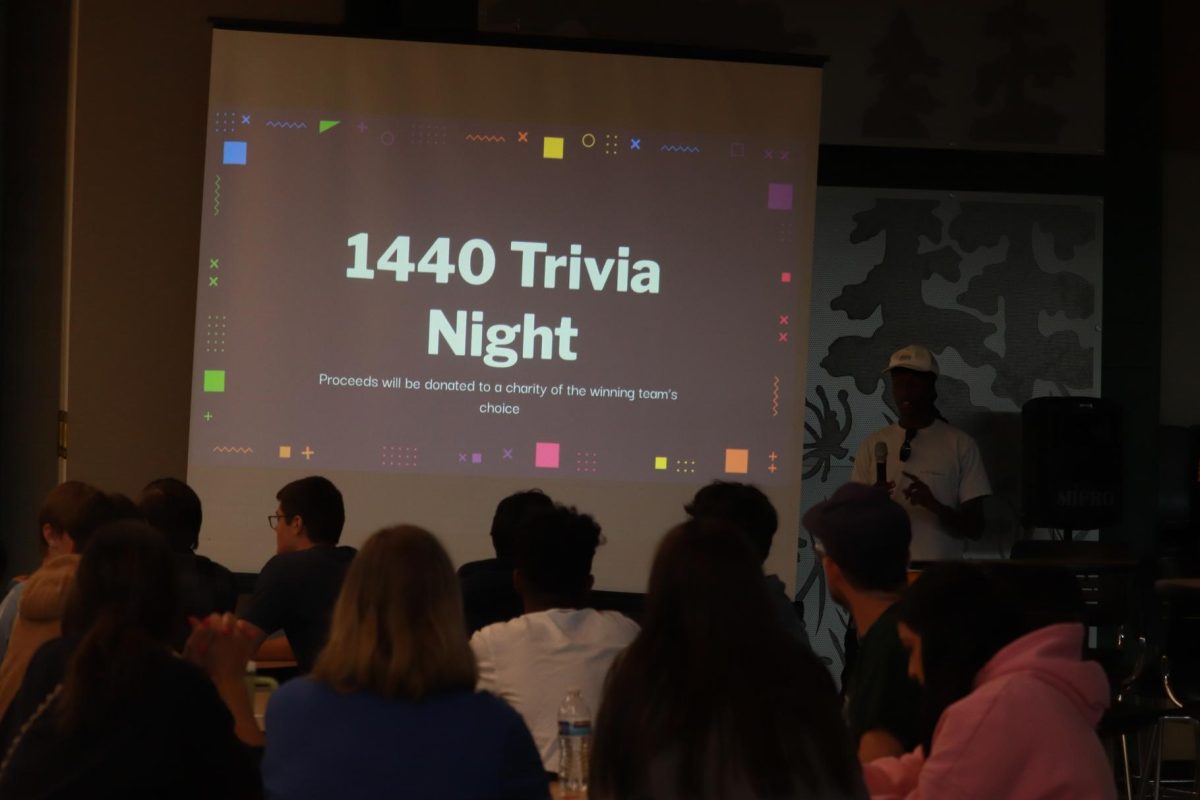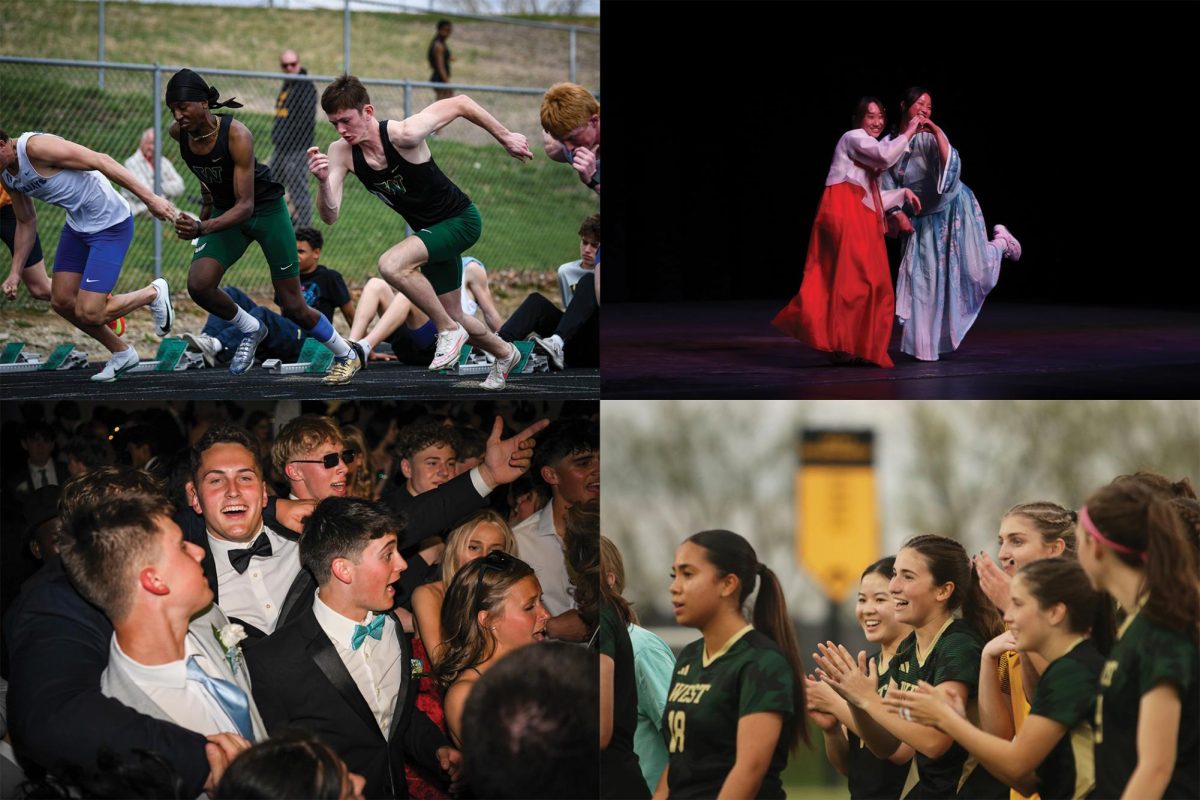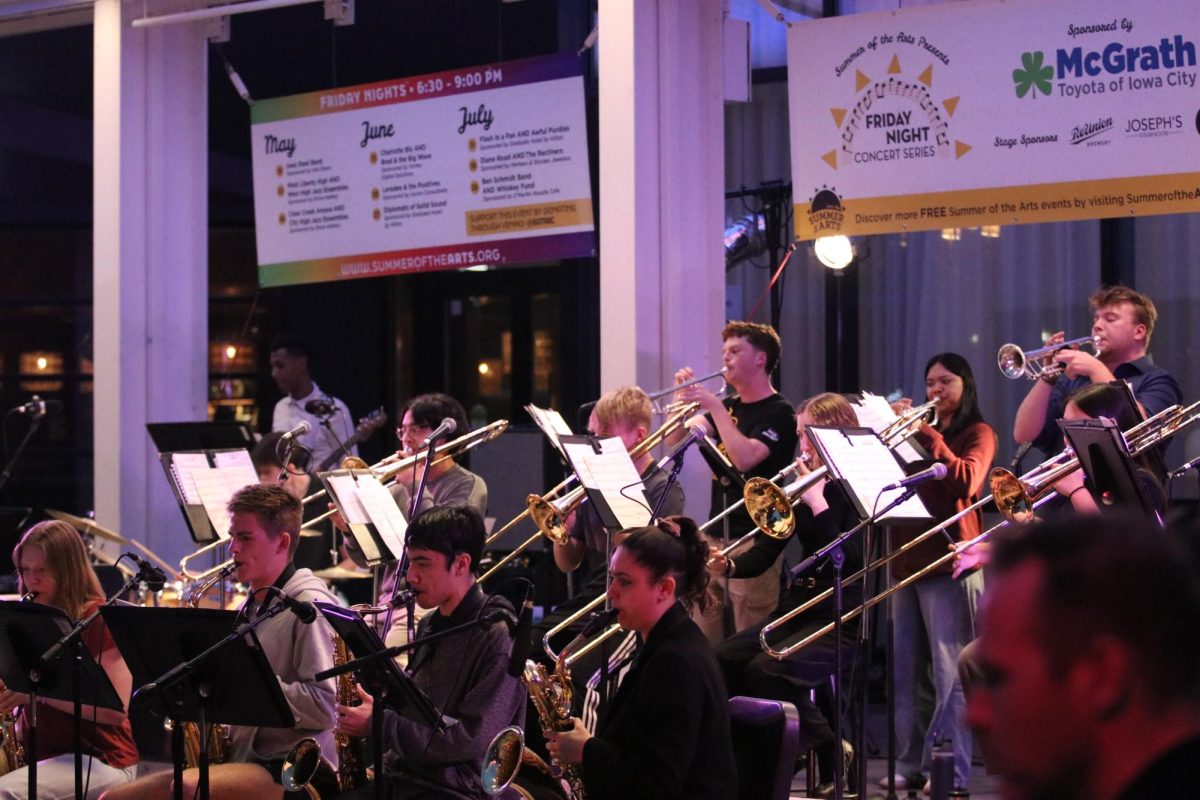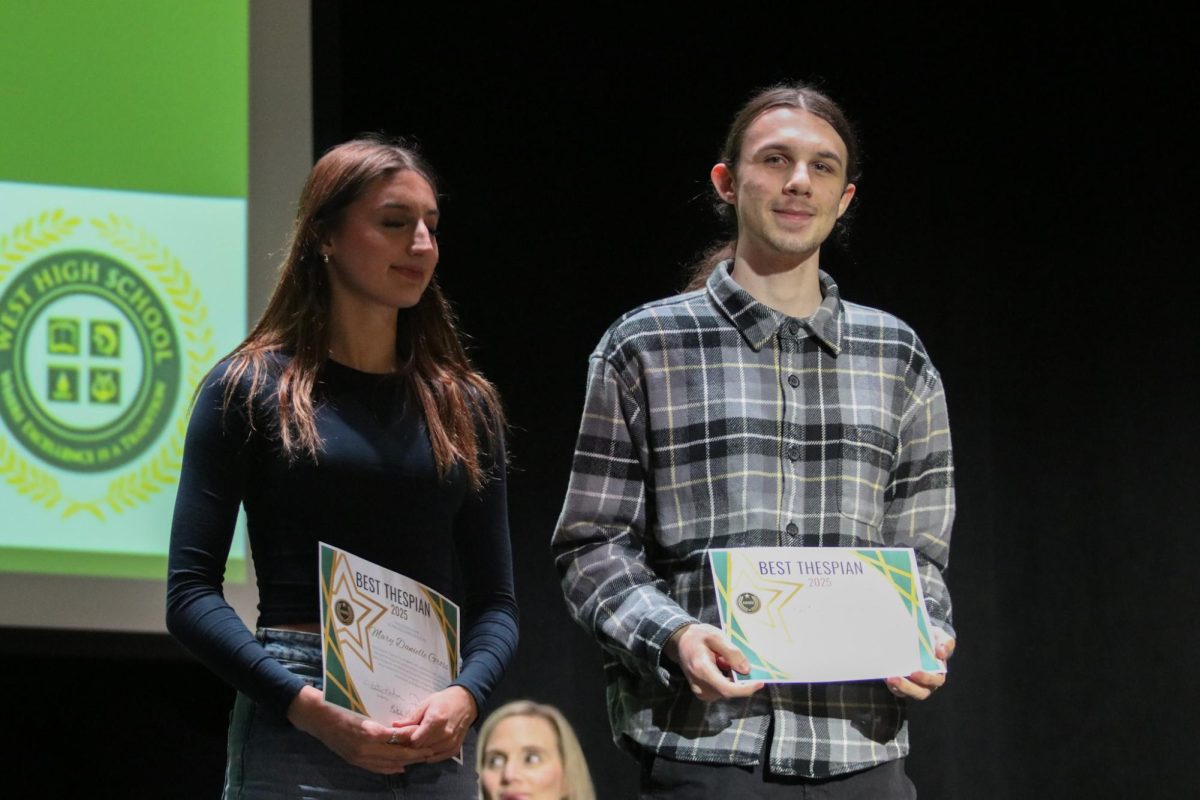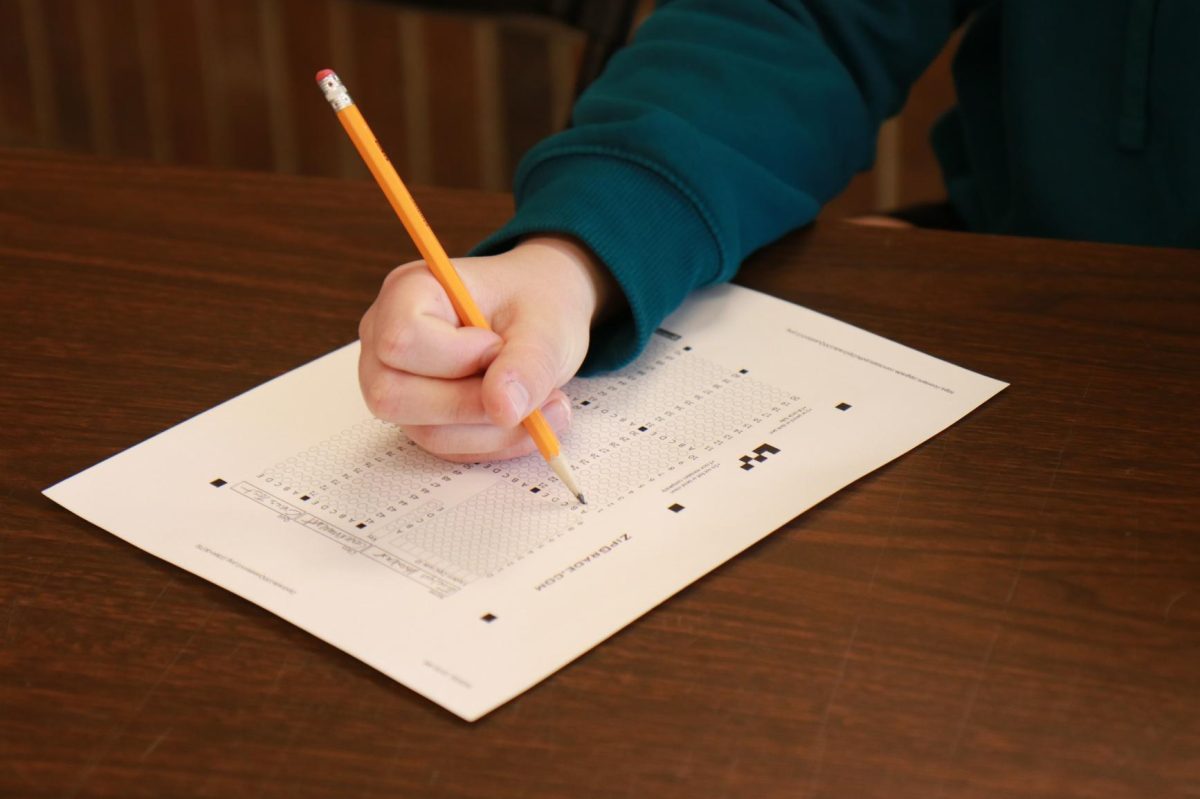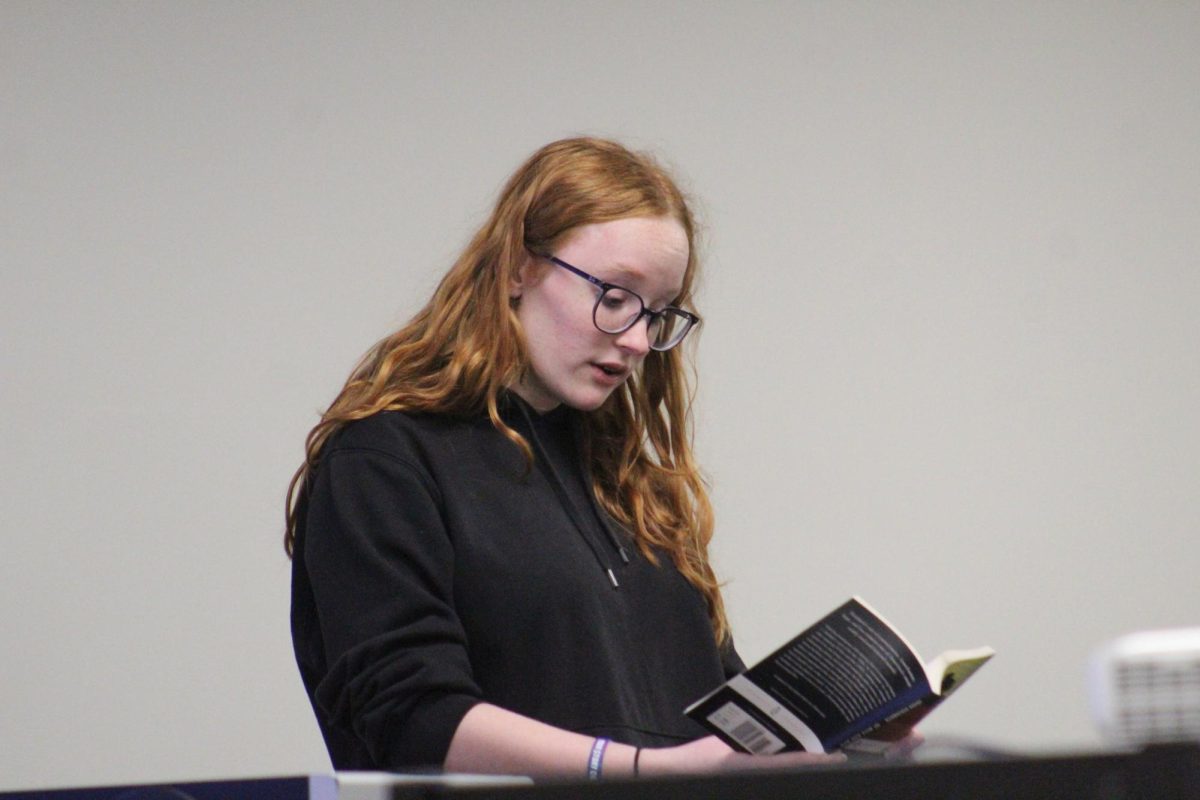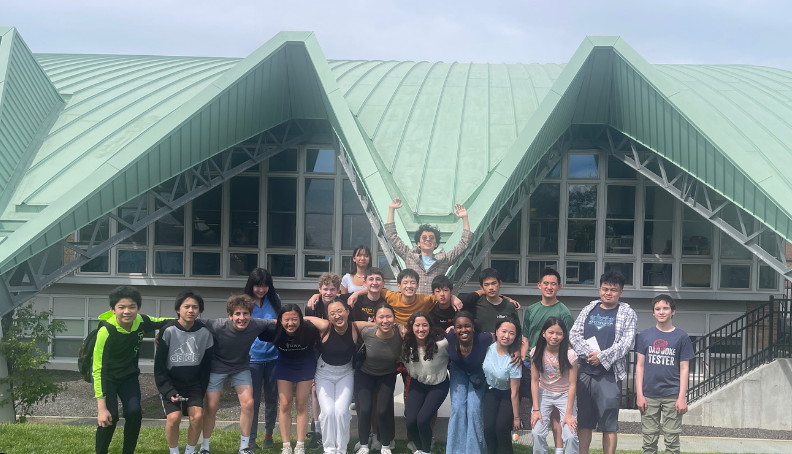“There are so many different paths I wish to walk in my life, and I most certainly regret that Speech and Debate can no longer be part of that journey,” West English teacher John Cooper wrote in an email announcing his resignation as West High’s Speech and Debate head coach on July 18. Although he loves debate, it isn’t a commitment he has time for anymore. Starting in August, Langston Bailey-Murray ’14 took over for the team.
A new era
In Cooper’s six years as Head Coach, West won four consecutive state titles — sending Bashir Eltyeb ’25 and Ben Kleiman ’24 to the 2024 Tournament of Champions, a prestigious debate tournament, where they made it to the semifinals. It’s safe to say Bailey-Murray inherited a strong team.
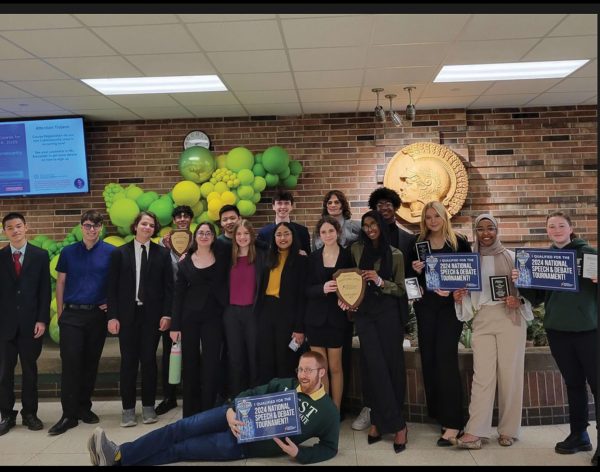
Bailey-Murray grew up in Iowa City, and during his time at West, participated in the Speech and Debate team, which fostered his interest in law. When Bailey-Murray was on the team, it was much smaller, but that didn’t stop him from making deep connections. To Bailey-Murray, his experience with West High debate wasn’t defined by success but by the friendships he made.
“There was one tournament in 2012 where, after the first day, we were all hanging out at the hotel afterwards and my debate partner at the time made a fun little stick figure drawing of all of the team members as a family in a large house. She brought in copies of that drawing for all of us on Monday. I still have that copy of the picture after 12 years,” Bailey-Murray said.
After graduating from West, Bailey-Murray attended the University of Iowa as a political science major and judged debate tournaments, an experience that provided a new perspective on debate.
“Once you start judging, you reframe a lot of the skills you learned in debate. When you’re debating, your focus is on winning…whereas when you’re judging, the question is not, ‘How do I win?’ it’s, ‘How do I evaluate this round?’,” Bailey-Murray said. “Being able to tease out what is actually important and what gets evaluated is a key skill for coaching because it doesn’t matter if you have the best argument in your head if that doesn’t come across to the judge.”
After graduation, Bailey-Murray attended law school, hoping his work as an attorney would combat employment discrimination, an interest stemming from his experiences as a person with dwarfism. Throughout his life, some things were more complicated than for people without a disability, including debate.
“On a purely structural level, a lot of things weren’t made with people like me in mind. For example, when I started debating, we debated on paper…this meant that debaters were lugging around stacks and stacks of paper in giant tubs,” Bailey-Murray said. Due to his disability, this was an unexpected obstacle. “Paper, in any real quantity, is not light, which meant these tubs got really heavy, really quickly. That was something I had to find a workaround [for] because I loved debate too much to let barriers like that keep me from debating.”
Experiences like these give Bailey-Murray a unique perspective to bring to West’s Speech and Debate team.
“[Bailey-Murray] speaks from a perspective I could never have spoken from. That intersectionality [defines] who we are and how we are able to lead from different positionalities; [it] really empowers kids,” Cooper said. “It gives kids the opportunity to say, ‘Hey, I’m seeing faces and hearing voices that perhaps are not our standard patriarchal, Eurocentric voices.’”
One of the ways Bailey-Murray hopes to make his mark is by creating connections with debaters outside the West community. He plans to take the team to more out-of-state tournaments, such as the John Edie Holiday Invitational in Minneapolis.
“There’s a lot of people you meet in the debate community, not [just] from this school,” Bailey-Murray said. “There’s a great sense of community that I’m excited [to help] debaters here foster with other schools.”
Moving forward
Cooper’s resignation was largely based on his decision to focus on family. Being the Speech and Debate head coach is a big commitment, and isn’t one he has time for this year.
“My big reason, above all things, is after six years, I did not have enough energy to faithfully take care of my family and commit to another state-run,” Cooper said. “Mental wellness and physical health have to be taken into account when doing big projects or committing to things.”
For such a big team, the time commitment is large. Taking into account tournaments and time to do paperwork, Cooper was spending almost two months per year working on something debate-related.
“We were going to over 20 tournaments a year. A tournament generally takes three days out of my life and then additional time during the week to get set up for it. Langston Bailey-Murray is amazing, and he has the time [to] sit down for an hour each day and do the paperwork necessary — and there’s a lot of paperwork for a team as large as ours,” Cooper said.
Additionally, Cooper was offered a teaching position at the University of Iowa, which was a career-building opportunity he could not turn down. There, he will teach Secondary Reading Instruction, or as he puts it, “teaching teachers how to teach reading.” One of the class’s primary focuses is making language accessible, especially considering the gap that exists between frequent readers and students who don’t regularly. Despite his new job and no longer being an official coach, Cooper still plans on supporting the team the best he can.
“My doors are wide open,” Cooper said. “I love the activity, I just couldn’t do it this year.”
Aahana Gupta ’27, a member of the debate team, heard Cooper was stepping down while at a debate camp over the summer with a few other members of the team.
“We were all so sad, and I was concerned because I wasn’t sure who would be our head coach and if we were going to have a head coach,” Gupta said.
She found out that Bailey-Murray would be taking over in August, around a week before school started. Gupta got to work with Bailey-Murray last year for World Schools, a debate event she competed in at nationals.
“[Bailey-Murray] coached, held practices and drove us places. Based on that tournament, he was a good coach, so I’m optimistic — we’re optimistic,” Gupta said.
Because it was announced so late, the team doesn’t have access to club funds and hasn’t been able to do much preparation for specific tournaments. Currently, they’re focusing on recruitment and preparing new team members for the season.
Subscribe to our newsletter!
"*" indicates required fields


